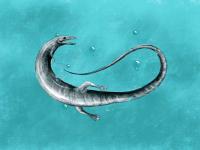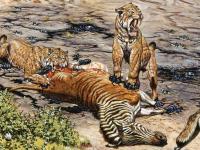Two Thirds of Portugal's Large Mammals Extinct in Last 1M Years

Almost half of all mammals have become extinct, with the proportion reaching two-thirds in the case of large mammals.
"It is overwhelming", Otávio Mateus of the Faculty of Science and Technology at Lisbon’s Universidade Nova told Lusa, adding that scientists.
The study, which shows that the country’s current biodiversity of mammals is only "a fraction" of what it was a million years ago.
Of 77 species of mammals found in fossil form in Portugal, only 41 or 54 percent still exist. Nineteen species, such as hyenas, have disappeared from what is now Portugal, and a further 11 – such as the straight-tusked elephant (Palaeoloxodon antiquus) - have become extinct.
The fauna and environment of the Iberian peninsula was once, according to Mateus, similar to that of Africa today.
"There were already humans and they lived [alongside] the fauna, but the emergence of humans has contributed to this extinction," he said.
The results emerged in the Master's thesis in Paleontology by Dário Estraviz López, who on defended his work, securing a mark of 19 out of 20, according to a statement released by the university.
"We are seeing enormous extinction of mammals in the last million years, which in paleontology is not that long a time," said Mateus, who supervised the thesis.
The data also makes it possible to assess the quality of the fossil record in Portugal, which is "very good" where large mammals are concerned, and may attract other researchers to the country, according to the academic.
"Less than a million years ago there were ancestral species of rhinoceros, elephants, hippopotamus and leopards in Portugal - all extinct today," writes Otávio Mateus. The pattern found in the study, he continues, is similar to that in the rest of Europe over a million years, which is "very fast in geological terms".
The extinction coincided with "the proliferation of humans", which should prompt reflection, Mateus argued in comments to Lusa.
Source: www.theportugalnews.com








